I’m in Scotland just now, on book tour with the very first events for Cacophony Of Bone, and I’ve been trying to write this post since I arrived days ago. The days are busy and I’m bone tired but it’s not that that’s made this difficult to write. Right now I’m in the back of our van in Fortwilliam where I will have an event this evening at the Highland Bookstore with Kirsteen Bell. I can’t wait. Like with so many other amazing women, we met online; growing closer during the lockdowns, and I can’t wait to talk with her about motherhood, moths, magic in the everyday and gardens. It will be quite moving for me, as—at a time of deep anxiety, when I felt like all the threads that tied me to who I once was had been cut—I dreamed Kirsteen showed me around her garden. I was in my fourth trimester, my son only a few months old, and I was grieving for so much more than I can really word, even now. Talking about this book these first times has been a profoundly moving experience, one I was not fully prepared for — and it is this that has made writing this post a little tricky.
We arrived in Portobello the night before my first event at the gorgeous Portobello Bookshop with Clare Archibald —a multidisciplinary creative whose work and outlook I have been drawn to and inspired by for many years. Even 24 hours before the event already I could feel the ripples of it beneath my skin, and this is one of the things that made it difficult to write this post…how might we write the unseen, the unborn, the unformed? How might we write the things that are, in fact , still being formed—being moulded inside us, still—even as we try to haul them up? You see, this book has taught me something vital, has delivered something into my hands quietly, something I spent a long time desperately searching for. This book has taught me that things will never— they could never — remain in one state for long enough to capture. It has taught me that time is something I will never even nearly understand. As for the working of memory; the way the mind and heart and body try to make sense of experience both real and other— this too will always be a thing I am drawn to but might never fully grasp. Reality is only a feeble attempt to marry it all up; and art the way many of us try to hurry that process along ; to twist it into the shapes we desire; to complicate our days and nights the best way we know how. It felt pertinent to arrive to a rainbow; that mythical, beautiful bridge between worlds; that ethereal beautiful embodiment of light and of colour and of longing.
We arrived, too, to the most exquisite sun, not quite ready to set. Already I could feel Clare there with me, although she was miles away in space and a day away in time. How do we write about that? How do we take the stunning, sculptured bones we find on a beach we used to go to when we felt lost and terrified a decade and a half ago— in another lifetime— and explain that we have taken these bones as gifts from way back then? As a means to go back to that person we once were and make her feel safe? To tell her that joy is coming…that one day she will stand on that same beach as her young child runs wild, just hours after he has told her that he can hear a butterfly and that the rocks are happy? That she will not always feel so weighed down by the past and that some day she will stand on that stretch of land and understand that every single moment is it’s own time, it’s own reality, and that that is more than ok. How do we write about the fact that I could feel that girl my my side that night, that I could feel Clare there too, even though I have never met her? That this reality felt as much a part of my lived experience than the sound of the gulls, the smell of the pizza, the pink sky as it dripped light onto the beach less and less until the dark fell, all at once, and we made for our van. And how do I explain that when I dreamed, that night, of Kirsteen’s garden again it felt like a memory of something real, tangible, rather than something my subconscious had concocted in the not quite darkness of May? I dreamed the ravens she had written of, and understood that sometimes we are tied to each other through blood and bone, sometimes through feather and dream, and each of these is as valid as the other.
How do we talk about these things, like a coal black bird following someone around through the darkest years of their life? I explored , in Thin Places, what it might mean to listen to the voices of the places and creatures of the earth. How we might learn from the encounters we have; how they might hold meaning far beyond our understanding. How that even when we are at our lowest there are things to help us through; how might we talk about these guiding lights without sounding airy fairy, new age, all those terms used to discount these realities that we cannot touch?
I’m reading this beautiful new book by Elizabeth Jane Burnett, and it’s not a coincidence this book has found me at this exact moment in time. But how do I explain that, this feeling that this book has been offered to me right when I need it the most?
I write, in Cacophony Of Bone, about the ways in which art—particularly the words of others— helped me through the first pandemic year. I returned, in that first pandemic May, over and over to E J Burnett’s exquisite hybrid memoir The Grassling, finding great comfort in how she maps the shifting world around her; how even at a time of great change in her life —personally, globally and more — she lowers her body down to the earth beneath and is returned to a place of deep knowing. To bring her new words with me as I try to talk about a book written in an attempt to do the same feels like a particular kind of alchemy; a magic that when we as women speak or write of it leaves us exposed in ways it takes great strength to wilfully ignore. I’m taken by the truths she gives voice to; the ways in which a body can be affected by the other bodies around it— of water, of moss, of colour, of light, of things we might not have the names for— and how sometimes we forget these influences, focusing too heavily on the grief and the pain; the worry and the loss.
‘And it is so convincing, this battering, that we forget that there was ever anything else. We forget that there are stars. We forget luminosity. We forget that a body could be far more than weathering.’
Oh, these lines. ‘ We forget that there are stars…we forget that a body could be far more than weathering.’ Yes, yes, yes.
What happens when we remember? How do we speak that truth? That realisation that we have moved out of the pool of darkness into the bright, light glistening; that achingly beautiful night sky that holds the past, present and all that still will come beneath its velvety pelt?
I’ve written for many years about the delicate dance between dark and light but if I’m really honest I feel like it is only these last few days that I have really allowed myself to step into the space in which they co-exist; womb like, unseen. I was a different person when I lived in Scotland, I was a different person before I had my son, I was a different person before I started to read this important book—but I hold all these people inside of me still. How do we talk about this all in ways that are true and real? After Portobello we headed to Glasgow where my son and I went, before sunset, into a wee community gardens. We played, wandered through wild flowers and my son chanced upon this wee nest made with woven branches. Every step he took, he was followed by a pair of magpies, as he has has been almost every day of this trip. I wonder what other creatures will accompany him through his days, as he finds his own way of making sense of this glorious, unimaginable earth. As he continues to learn to name these beings with which he shares it. As he weaves his own safe nest; wherever and with who and whatever he chooses. I hope most of all that he feels safe inside his own body, that first home outwith my body.
I hope that he will find ways to remember, always, that there are stars, and that their light is his light; that his light is their light— and that each is changed, remade—by the other.
How to write this interconnectedness; these unsettling truths; this hope in the dark?
Any which way we can of course, over and over again; until we remember that a body can be far more than weathering.
This morning I placed my body in Loch Iabhair and afterwards I realised I was not the same person when I got out as I was when I got in and I was heartglad, full to the brim with gratitude for all that this body of water whispered to my body of bone; a cacophony of ______ ….., etc….
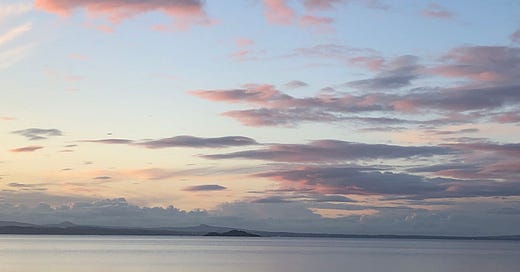



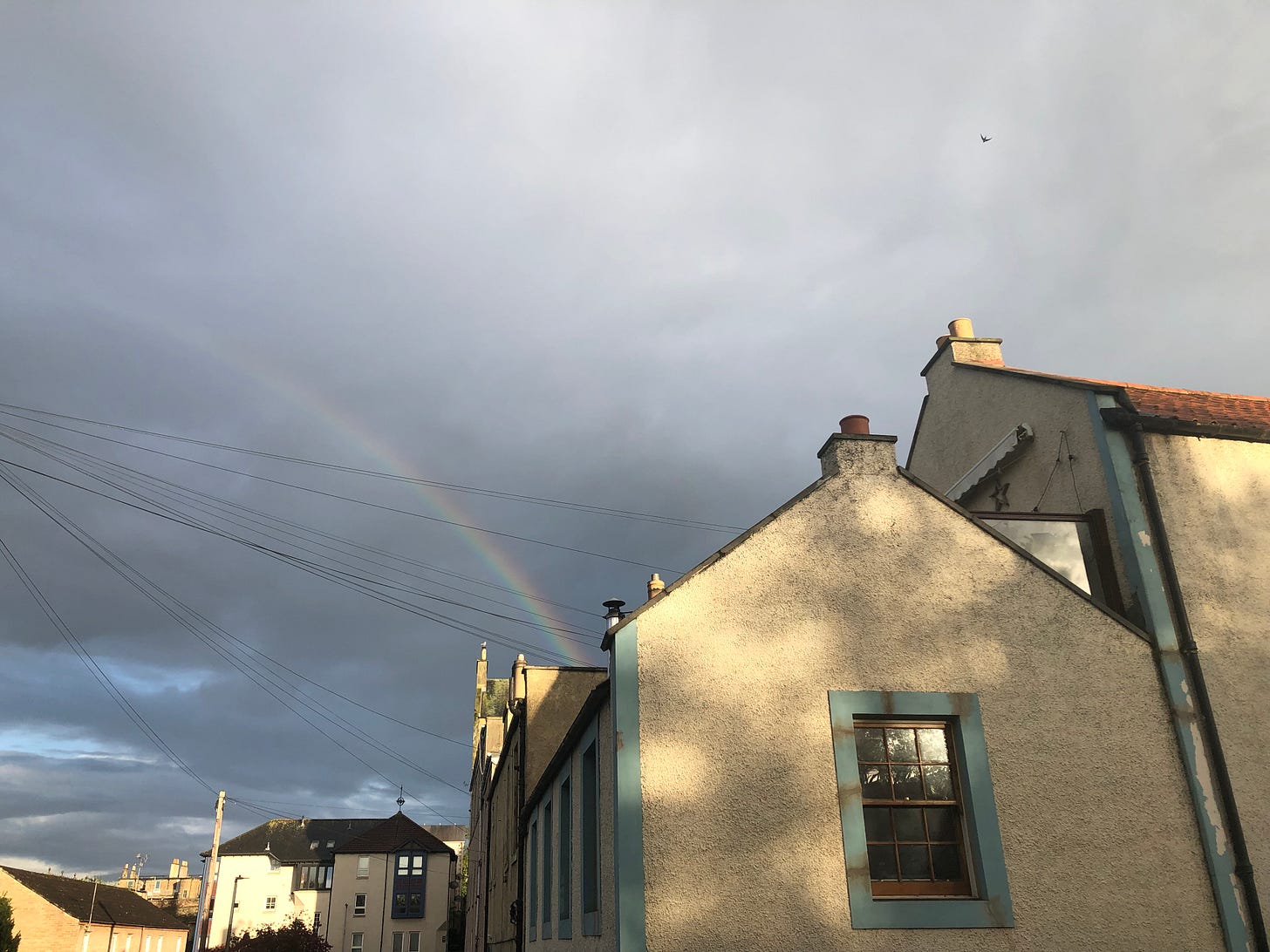
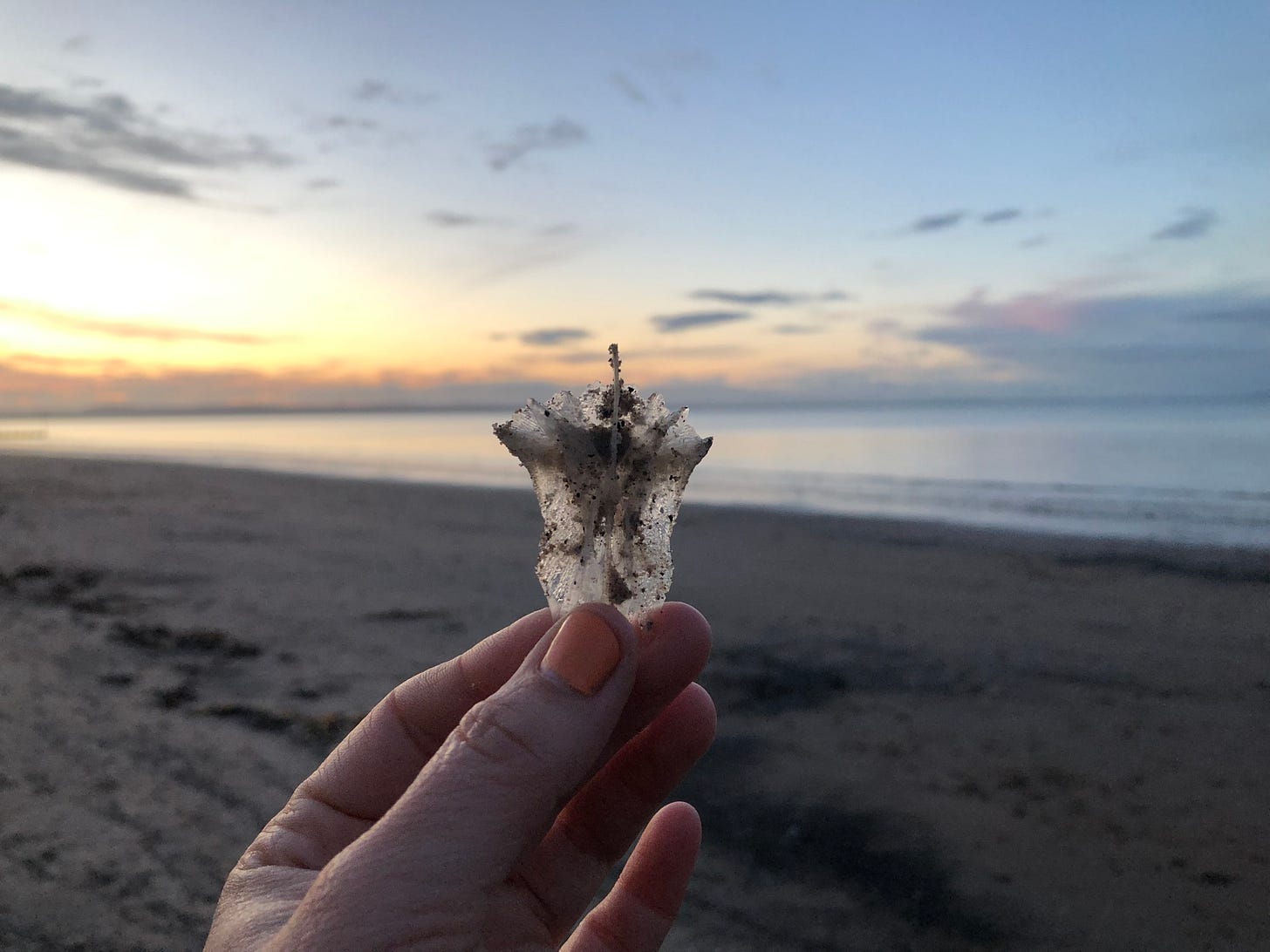
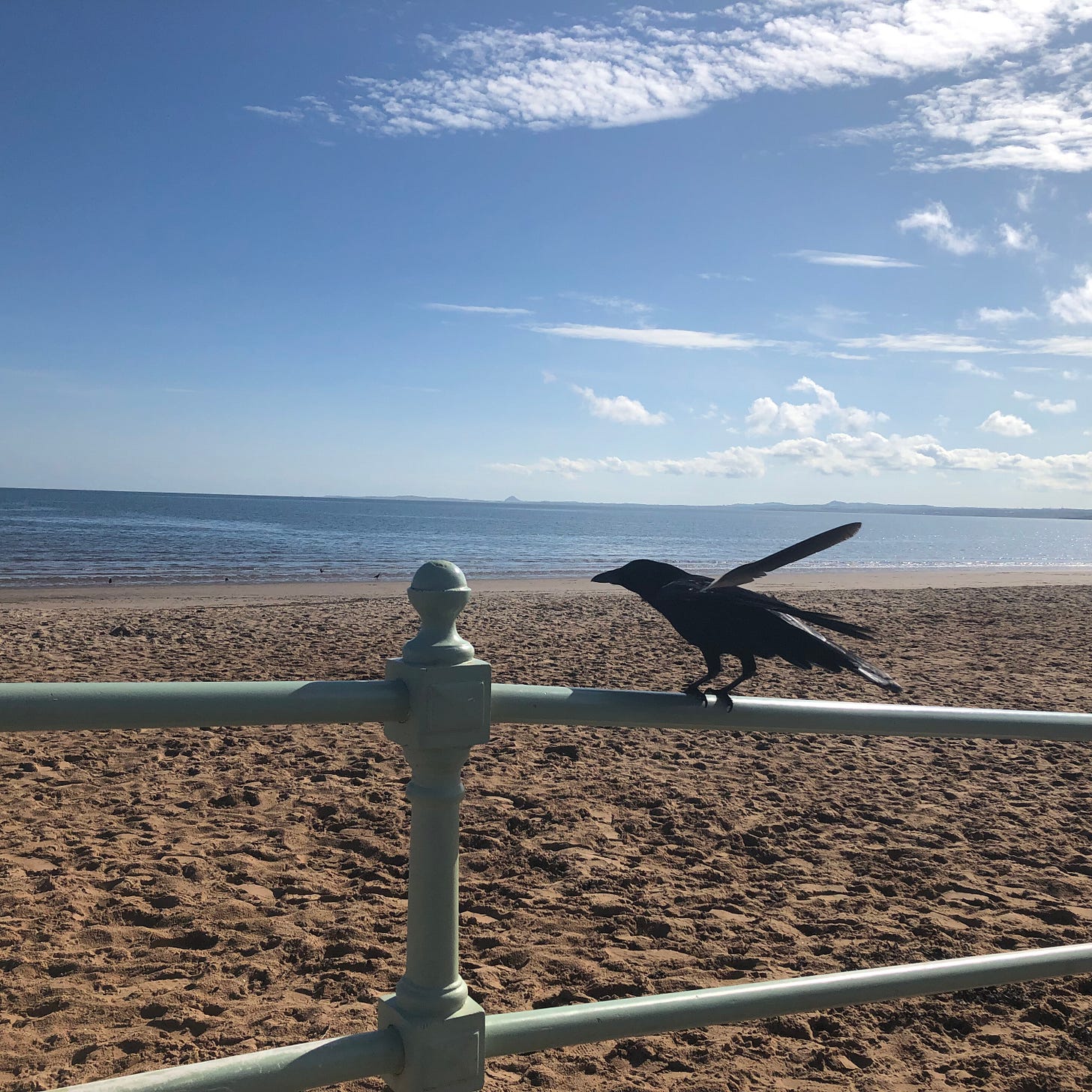
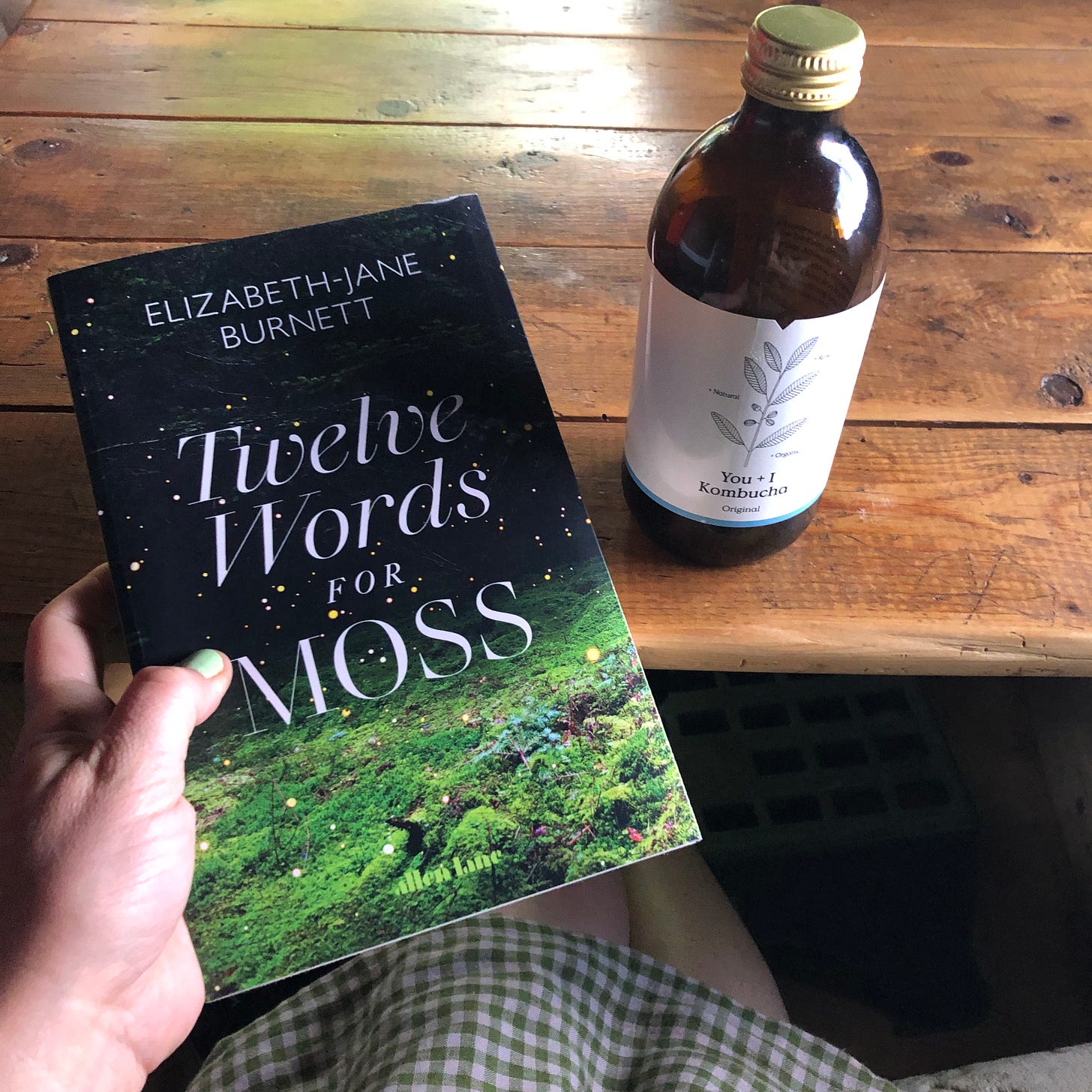
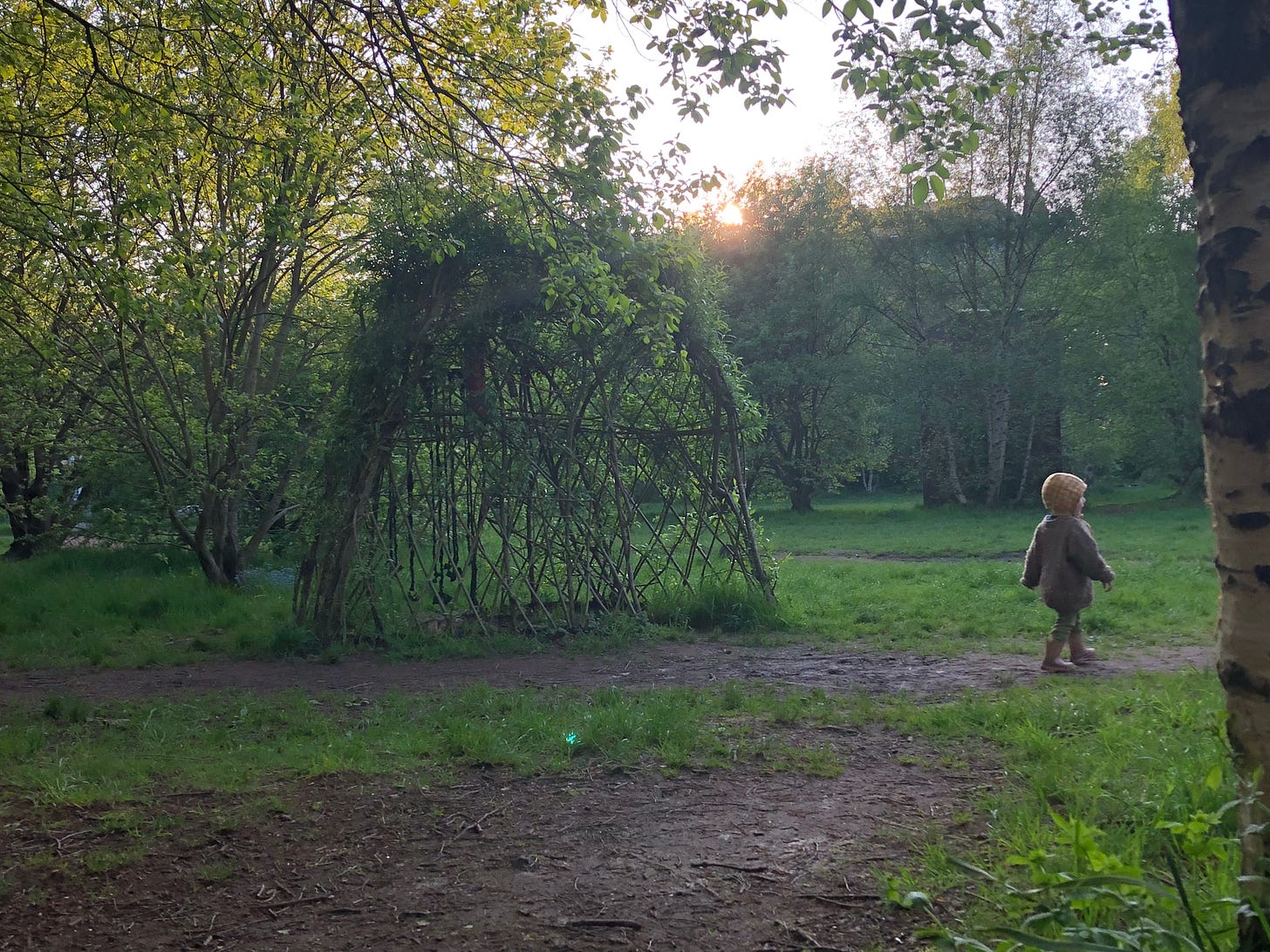

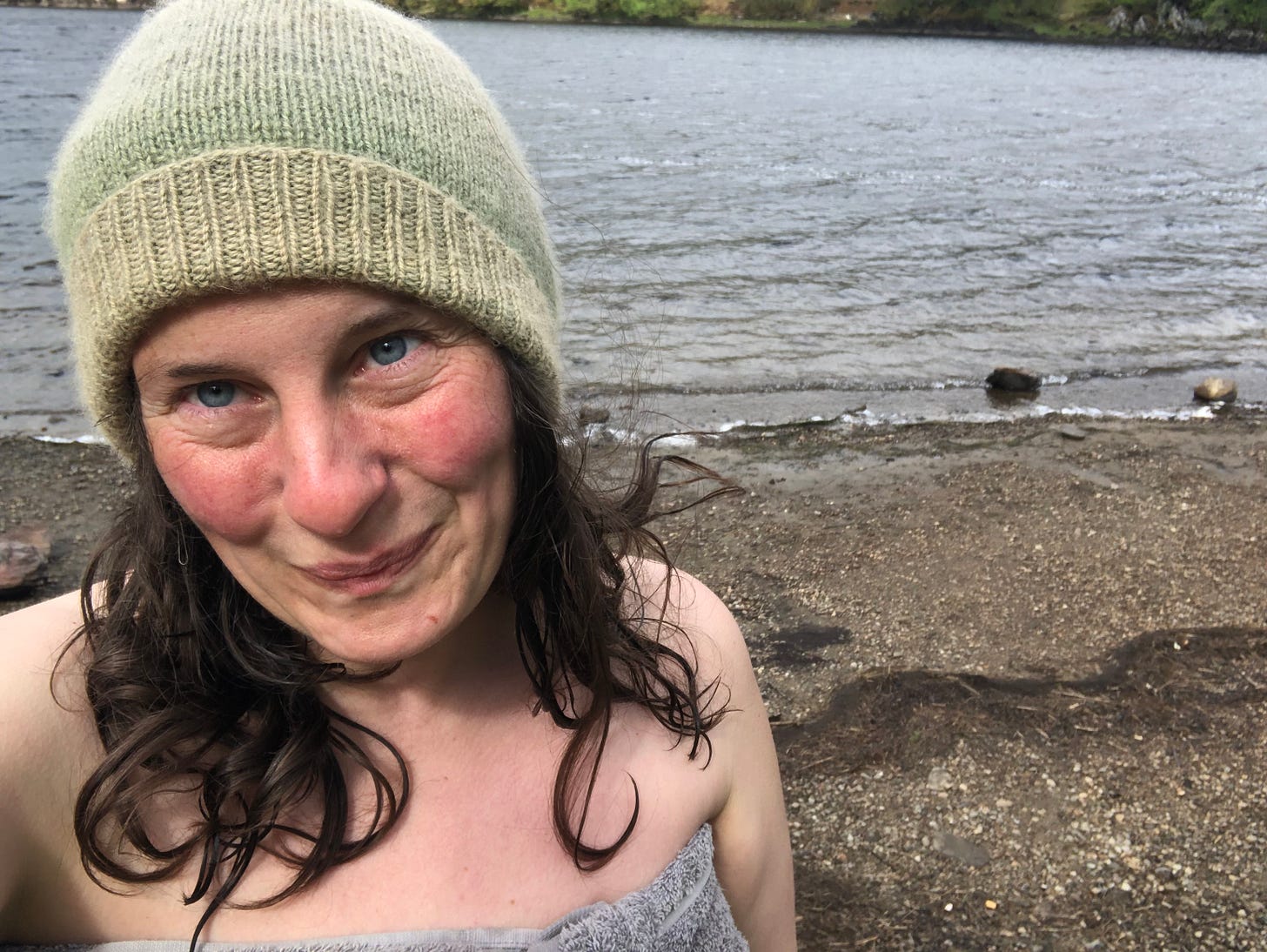
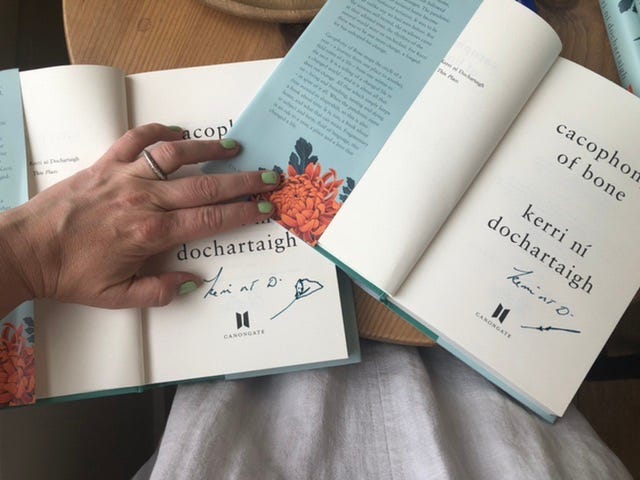
So beautifully written.
Once again, thank you for the inspirational words!
xxx Jenny
Such magnificence. Thank you. E